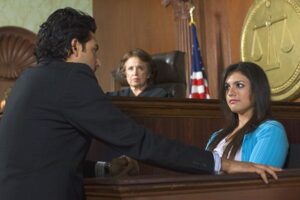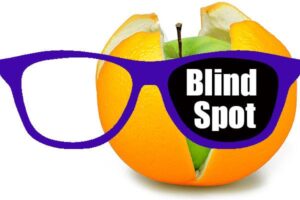You will only call an expert to testify in your case if they are providing positive testimony for your position, so bias on both sides is a given. Read on for some ideas on how to overcome retention bias and adversarial allegiance during cross-examination.
By Stephen Kolodny, Family Lawyer

Since lawyers will only use experts who support their case, retention bias is built into the selection process – and when an expert gives their opinion, they are going to do all they can to support it. Despite the fact that a lawyer will only call an expert to testify if the expert is providing positive testimony for the position, every lawyer must take great care to ensure that their expert’s testimony is supported by hard facts and admissible evidence.
It is the lawyer’s job – their obligation to themselves, the expert, the client, and the court – not to allow retention bias or adversarial allegiance to control the ultimate opinions that are expressed in the courtroom. Lawyers, remember that you are judged not only by what you do in a courtroom but also by the credibility of the testimony you present to the court. You want to preserve your reputation for honesty and credibility; it is hard to earn, and easy to lose.
Overcoming Retention Bias and Adversarial Allegiance
It is often good fodder for cross-examination to ask an opposing expert if they are biased in favor of the other party; I have never heard an expert admit to being biased, but the art of cross-examination should allow you to get an expert to deny the logically undeniable. The way you phrase your cross-examination question – including tone of voice, inflection, and timing – is critical.
I often ask experts the following: “If I asked you a question to which the truthful answer could be stated in two ways – one of which would be helpful to my client, and the other would be helpful to the other party – which way would you answer the question?” The deafening silence that almost always occurs while the witness processes that question and their answer is devastating all by itself. Thirty seconds of silence in a courtroom is like a lifetime! Remember the cross-examination trick when a witness says something happened for three minutes; have you ever tried to stand in front in a silent courtroom for three minutes? It is almost impossible!
The “Bias Blind Spot”
Professional articles make it clear that retention bias and adversarial allegiance do exist and they are difficult – but not impossible – to overcome.
Anything You Can Do, I Can Do Better: Bias Awareness in Forensic Evaluators” (Journal of Forensic Psychology Research and Practice, Vol. 18, No.1, 2018) notes that: “… research has confirmed the presence of bias in some psychological evaluations. … Investigations regarding bias awareness reveal that most individuals lack recognition of their own biases in comparison with their perception of bias in others – an issue known as the Bias Blind Spot … but persist in believing introspection to be an effective technique for reducing bias despite professional research indicating that introspection is ineffective for reducing bias….”

Many years ago I cross-examined a well-respected (by some) Los Angeles child custody evaluator who had written many articles on the critical importance of using the MMPI-II in custody evaluations, going so far as to state that failure to do so would prevent someone from doing a competent job. In our case, that evaluator reached positive conclusions about the mother, who had not completed her MMPI-II. The expert attempted to justify his ability to reach conclusions without those test results. After a long cross-examination using article after article of his, which I had in court on counsel table and referred to during my cross-examination, his “bias blind spot” became obvious. The illogic of his attempt to justify what he had done in that case – contrary to what he had “preached” for so many years – caused his testimony to be completely disregarded by the judge. It also resulted in a substantial diminution of his credibility with the Courts for the remainder of his career, which then became short. Remember: lawyers talk about judges, and judges talk about lawyers and their experts.
So, what to do if you find your expert has failed to do something you think should have been done? If I had represented the mother in the above case, I would have insisted that he test the mother. Whether or not his position about the MMPI-II was correct is irrelevant here; he lost credibility because his testimony was inconsistent with his multiple previous expert opinions. (In fact, the MMPI-II was never designed to provide results-focused on, or essential to, custody determinations.)
Strong Cross-Examination is Essential
Although cross-examination has been called “the greatest legal engine ever invented for the discovery of truth” (Wigmore), it is also a great “engine” for the casting of doubt and raising issues of credibility. I believe lawyers are in the persuasion business, not the truth business. Most of the time we do not know what the truth is: we get information from our clients and others and, as long as we have no reason to believe it is untrue, present it to a court in the most persuasive way we can to achieve the result our client has retained us to obtain. Half our job is to present evidence in the most convincing and persuasive manner possible, and the other half is to undermine the credibility of the opposing party and their witnesses. Some lawyers think that you never win a case on cross-examination, but I believe strong, effective cross-examination is an essential part of every case I try. Exposing the weakness of the other party’s case, and raising questions about the competency and veracity of their witnesses, is a critical part of our task as a trial lawyer.
Refer to Reputable Studies to Expose the Opposing Expert’s Retention Bias and Adversarial Allegiance
Research in the mental health community has absolutely established that contextual bias, which I believe includes retention bias and adversarial allegiance, exists and cannot be overcome by using self-introspection. If you can get the opposing expert to acknowledge that they use self-introspection to control these biases, referring to published studies should seriously undermine their credibility during cross-examination.
“Are Forensic Experts Biased by the Side That Retained Them?” by Daniel C. Murrie, Ph.D., et al (Sage Journals, August 22, 2013) confirms retention bias: “The results [of their extensive testing procedures] provide strong evidence of an allegiance effect among some forensic experts in adversarial legal proceedings… Results from this study underscore recent concerns about forensic sciences [cite omitted] and raise concerns specific to forensic psychology – by demonstrating that some experts who score ostensibly objective assessment instruments assign scores that are biased toward the side that retained them.”
After discussing the allegiance bias resulting from the selection effects, Dr. Murrie notes that: “… our results suggest that even without selection effects, the pull of adversarial proceedings tends to influence opinions by paid forensic experts… the evidence of allegiance effects in the case of structured, ostensibly objective instruments that usually reveal strong interrater agreement leaves us even more concerned about the possibility of allegiance effects in the case of procedures that are less structured or less guided by scoring rules.”
“How Cross-Examination on Subjectivity and Bias Affects Jurors’ Evaluations of Forensic Scientific Evidence” by William C. Thompson J.D., Ph.D., and Nicholas Scurich Ph.D. (Journal of Forensic Sciences, 2019), refers to a 2009 National Academy of Sciences study that concluded: “forensic science experts are vulnerable to cognitive and contextual bias” that “renders experts vulnerable to making erroneous identifications.” This article also makes it clear that cross-examination techniques and styles are important in influencing the mind of the trier of fact, and that decision-makers “perceived the [expert] to be less credible when admitting that they were exposed to task-irrelevant information.”
In conclusion, we need to be concerned, we need to be cautious, and we need to be strong advocates who challenge these experts, one and all!
Stephen Kolodny is an AAML Fellow, a Certified Family Law Specialist (California Board of Legal Specialization), and a Founding Diplomate of American College of Family Trial Lawyers. Admitted to the United States Supreme Court as well as the California State Bar, he co-authored The Divorce Trial Manual: From Initial Interview to Closing Argument (ABA, 2003). www.kolodnylawgroup.com
Related Articles
Do Expert Witnesses’ Opinions Depend on Who Hired Them?
Family Lawyer Magazine asked lawyers and other family law professionals visiting our website to help us answer the question: “Do expert witnesses’ opinions depend on/align with the party who hired them?” Six lawyers and three forensic experts accepted the challenge and submitted short articles on the Good, the Bad, and the Ugly of expert witness selection and testimony.
Expert Opinions: Hired Guns vs. Objective Experts
When experts are less than objective or use different methodologies from each other, their results can be miles apart – which tends to polarize the litigants and does not pave the way towards an equitable resolution to the case.







